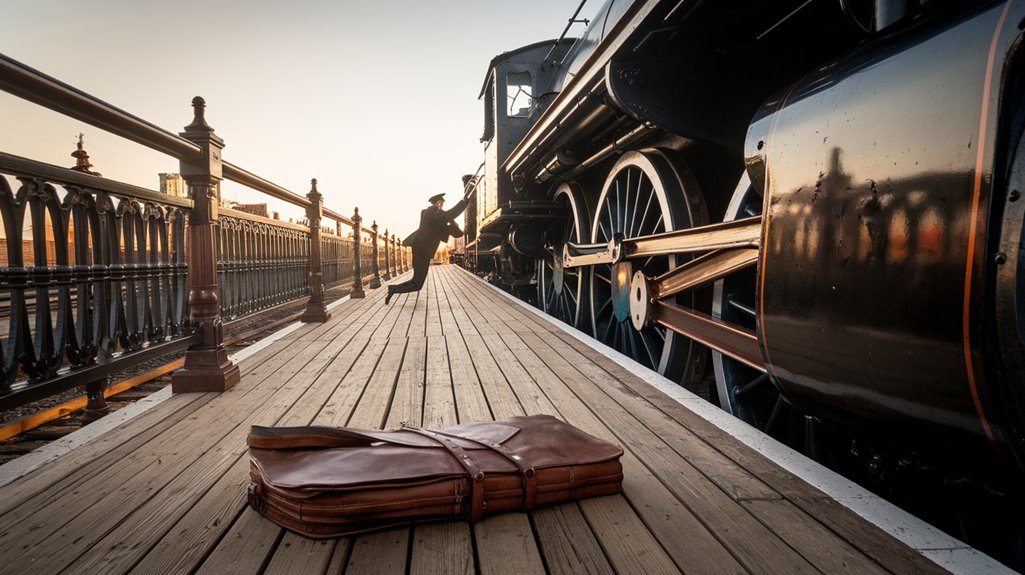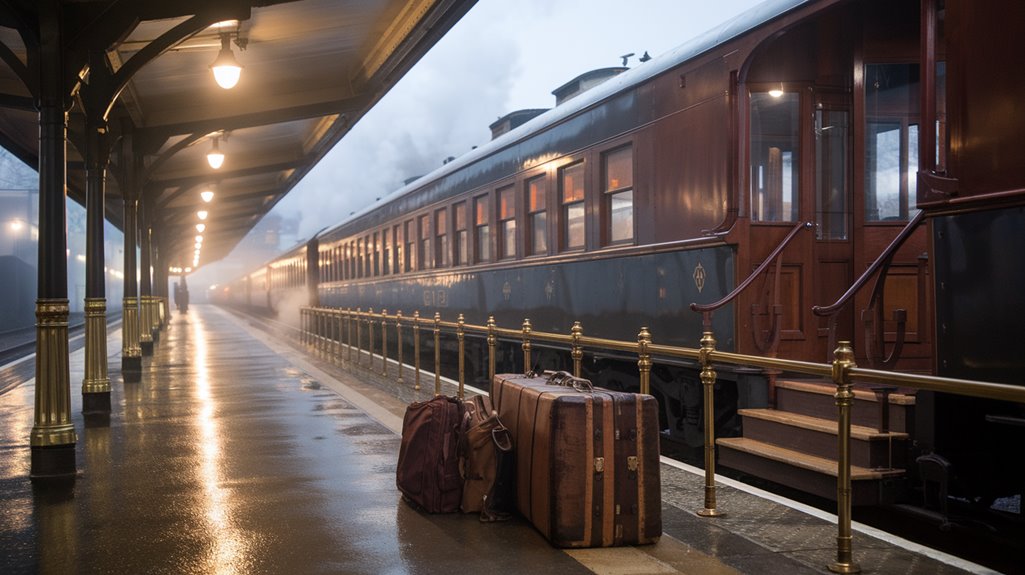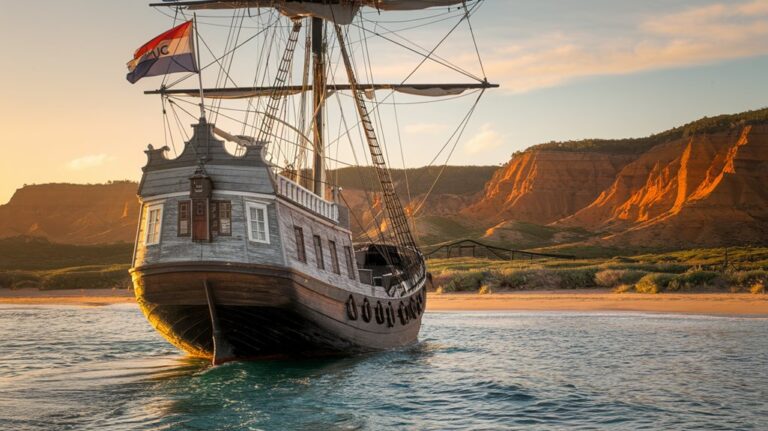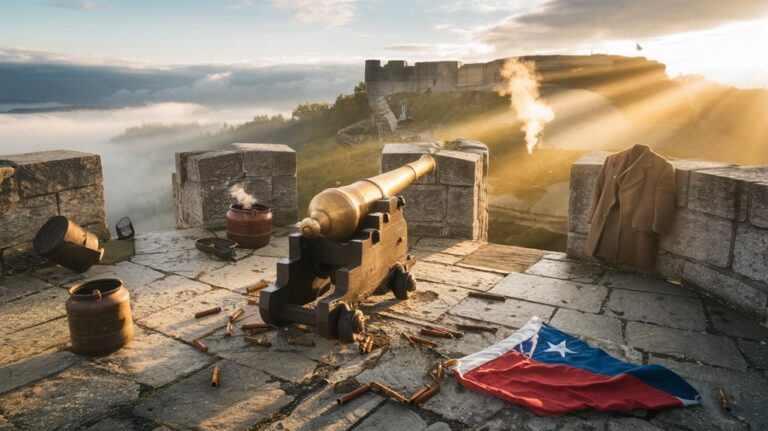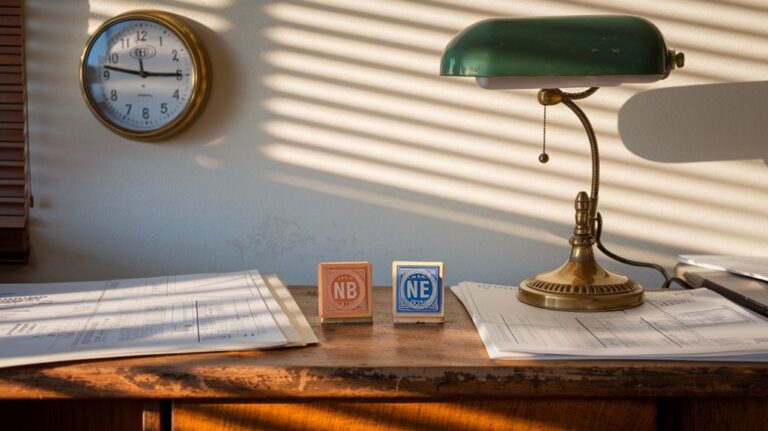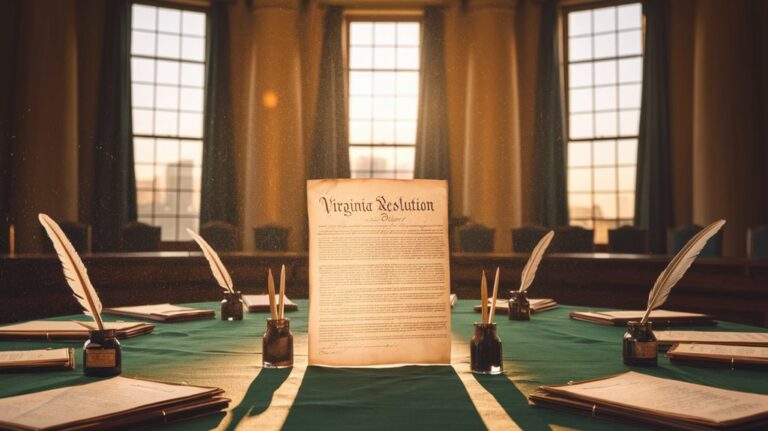Abraham Lincoln’s Son Was Saved by John Wilkes Booth’s Brother
You might think you know all the major stories surrounding Abraham Lincoln's presidency and assassination, but history has a way of revealing unexpected connections. Consider this: before John Wilkes Booth took the president's life, his brother Edwin saved Lincoln's son from certain death at a train station. It's a twist of fate that'll make you question the intricate web of coincidences that shape our past and wonder what other hidden stories are waiting to be discovered.
The Fateful Day at Jersey City Station
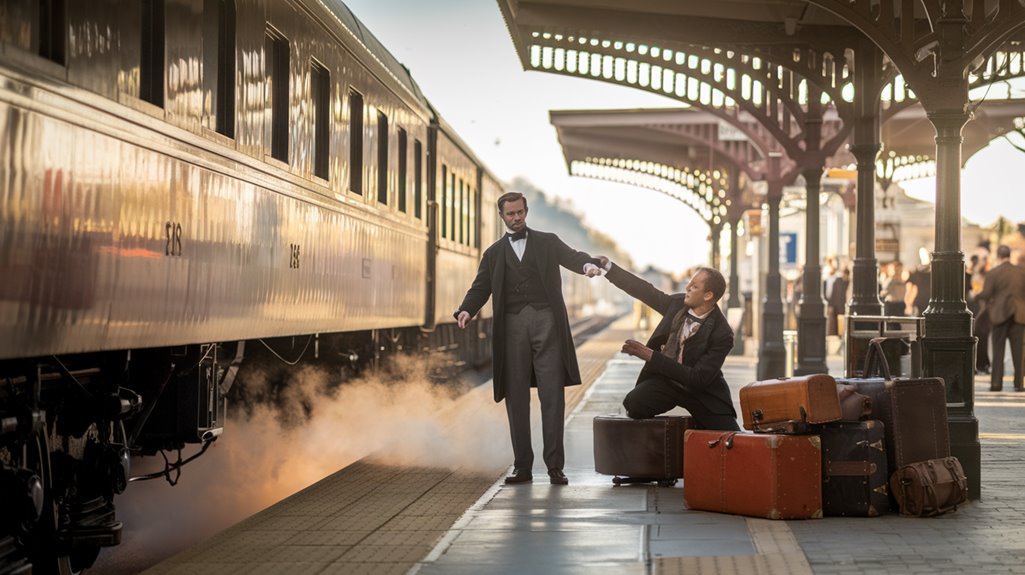
While the exact date remains uncertain, a remarkable encounter between Robert Todd Lincoln and Edwin Booth unfolded late one night at Jersey City station in New Jersey.
During this Train Incident, Lincoln, then a Harvard student in his early twenties, found himself caught in a dangerous situation on a crowded platform. As the train began moving, he lost his balance and fell into the narrow gap between the platform and train car.
You might wonder what happened next at Jersey City that night. In a split-second reaction, Edwin Booth, a well-known actor at the time, grabbed Lincoln's coat collar and pulled him to safety. This heroic act occurred just months before Booth would perform with his brothers in Julius Caesar in 1864, their only joint stage appearance. After this incident, Edwin would be deeply affected when his brother killed President Lincoln, leading to a brief retirement from the stage.
Lincoln immediately recognized his rescuer and thanked him by name, though Booth wouldn't learn he'd saved the President's son until months later through a letter from Colonel Adam Badeau.
The Booth Family Legacy: A Tale of Two Brothers
Deep within the annals of American theatrical history, the Booth family name conjures a tale of two brothers whose lives took drastically different paths.
Edwin and John Wilkes Booth embodied a theatrical rivalry that extended far beyond the stage, with their conflicting political views driving them apart. Edwin was a staunch Union supporter who openly backed President Lincoln's administration. Their father Junius Brutus Booth was a renowned British Shakespearean actor who greatly influenced their theatrical pursuits. While Edwin established himself as one of America's greatest actors and founded Booth's Theatre in New York, John Wilkes's promising career was forever overshadowed by his assassination of President Lincoln.
Edwin's legacy includes not only his masterful Shakespearean performances but also his heroic rescue of Robert Todd Lincoln at a train station.
Yet, the family's rich theatrical heritage, including their memorable joint performance in Julius Caesar, remains partially eclipsed by the infamous actions of John Wilkes Booth.
Edwin Booth: The Lesser-Known Hero
In a remarkable twist of fate, Edwin Booth's chance encounter with Robert Todd Lincoln at a Jersey City train station in late 1863 would forge an unexpected connection between two families destined for tragedy.
You mightn't know that Edwin Booth's courage shone through when he grabbed young Lincoln by the collar, pulling him to safety as the train began to move.
His career as one of America's greatest Shakespearean actors made him a respected figure long before this incident.
What makes this rescue even more poignant is that Edwin, a renowned actor known for his theatrical compassion, didn't realize he'd saved the President's son until months later.
Through Colonel Adam Badeau's letter, he learned of his heroic deed's significance. General Grant also wrote to thank Edwin for his actions.
While his brother John Wilkes would later become infamous for assassination, Edwin's legacy includes this selfless act that saved Abraham Lincoln's only surviving son from certain injury or death.
A Twist of Historical Irony
Life's peculiar timing played out a remarkable historical paradox when Edwin Booth rescued Robert Todd Lincoln from a near-fatal train accident.
The historical irony becomes even more striking when you consider that just months later, Edwin's brother, John Wilkes Booth, would assassinate Robert's father, President Abraham Lincoln.
Edwin performed with his brother John in a historic performance of "Julius Caesar" in 1863, showing no signs of the tragedy that would later unfold between their families.
This twist of fate affected both families' dynamics in profound ways. While the Booth family faced public scorn after the assassination, Edwin found solace in knowing he'd saved the president's son.
You might wonder at the coincidence that brought these two men together at that Jersey City train platform. Robert was serving as captain's rank in the Union Army at the time. The incident stands as a poignant reminder that life's interconnections often transcend family ties, offering moments of heroism and redemption even in the darkest chapters of history.
The Story's Journey Through Time
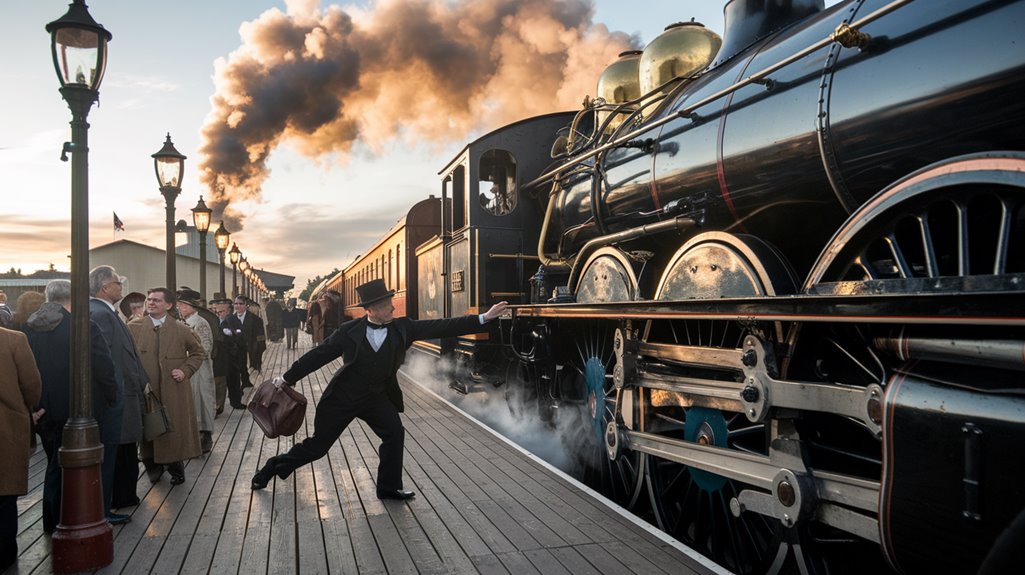
Through decades of retellings and publications, the remarkable rescue story of Robert Todd Lincoln by Edwin Booth has evolved from a personal anecdote into a well-documented historical event.
You'll find the story's popularity grew considerably between 1909 and 1979, reflecting shifts in America's historical memory of the Lincoln-Booth family dynamics.
- Robert Lincoln wrote at least three personal accounts of the incident, including letters to Richard Watson Gilder and Commodore Benedict
- The story first appeared in print with just two narratives between 1865 and 1908
- Eleven different narratives emerged in the following decades, each adding new perspectives
- Multiple historical sources have verified the event's authenticity, though minor details vary
The incident's documentation has helped preserve this unique moment where two historically intertwined families crossed paths before tragedy struck.

